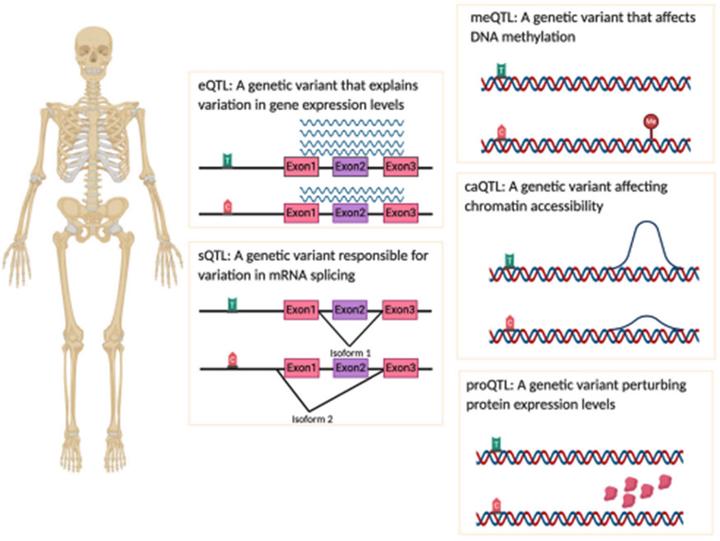Using -omics Data to Inform Genome-wide Association Studies (GWASs) in the Osteoporosis Field

Abstract
Purpose of review: Osteoporosis constitutes a major societal health problem. Genome-wide association studies (GWASs) have identified over 1100 loci influencing bone mineral density (BMD); however, few of the causal genes have been identified. Here, we review approaches that use -omics data and genetic- and systems genetics-based analytical strategies to facilitate causal gene discovery. Recent findings: The bone field is beginning to adopt approaches that are commonplace in other disease disciplines. The slower progress has been due in part to the lack of large-scale omics data on bone and bone cells. This is however changing, and approaches such as eQTL colocalization, transcriptome-wide association studies (TWASs), network, and integrative approaches are beginning to provide significant insight into the genes responsible for BMD GWAS associations. The use of -omics data to inform BMD GWASs has increased in recent years, leading to the identification of novel regulators of BMD in humans. The ultimate goal will be to use this information to develop more effective therapies to treat and ultimately prevent osteoporosis.